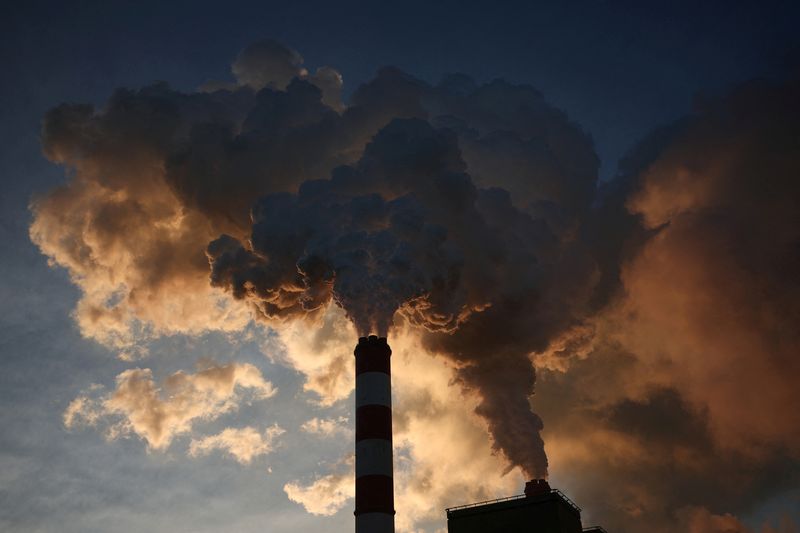By Francesca Landini
TURIN (Reuters) -Energy ministers from the Group of Seven (G7) major democracies agreed on Tuesday to end the use of coal in power generation during the first half of the next decade, but gave leeway to Germany and Japan whose economies depend on the fuel.
The agreement is a further step in the direction indicated last year by the COP28 United Nations climate summit to reduce use of fossil fuels, of which coal is the most polluting.
"It is the first time that a path and a target has been set on coal," said minister Gilberto Pichetto Fratin, who chaired the two-day meeting in a former royal residence near Turin.
However, the G7 communique also included an alternative goal of phasing out coal-fired power plants "in a timeline consistent with keeping a limit of a 1.5°C temperature rise within reach, in line with countries' net-zero pathways".
Limiting temperature rises to 1.5 Celsius (2.7F) above pre-industrial levels, scientists have said, can prevent the most severe consequences of climate change.
The caveat, according to sources who requested anonymity, was included to grant room for manoeuvre to Germany and Japan.
In view of the impact of Russia's invasion on Ukraine on Europe's fuel security, it also offers flexibility in case of a new, unexpected conflict, Italy's energy minister told the closing news conference on Tuesday.
Support from many governments for strong climate action has faded as economic weakness has made them focus on the immediate cost and it remains to be seen how Germany and Japan will move to reduce the use of coal, which produces more than a quarter of their electricity.
Germany has written into its legislation a final target to shut coal plants by 2038, while the current government has expressed the will to phase out coal by 2030, and Japan has not set a date.
German Economy Ministry State Secretary Anja Hajduk told Reuters Tuesday's deal was an important achievement.
"The fact that we were able to reach an agreement with our G7 partners on a time horizon for the coal phase-out is a historic success for climate protection," Hadjduk said.
ZERO RUSSIAN GAS?
Britain, Canada, France, Germany, Italy, Japan and the United States also said in the communique they recognised cutting Russian energy revenues was essential to support Ukraine and promised to work on further reducing imports of Moscow's gas.
But they did not agree any common position on possible European-wide sanctions on Russian liquefied natural gas (LNG).
"We have discussed how to move towards the goal of reaching zero Russian gas imports... reviewing also issues related to LNG," Pichetto said.
In the climate and energy section of the 35-page communique, the G7 said they would contribute to a global goal for energy storage in the power sector of 1500 gigawatt (GW) in 2030, a more than six-fold increase from 2022.
The ministers also said investments of $600 billion per year would be needed in electricity transmission and distribution grids by 2030 as they increased the development of renewable energy sources.

The G7 bloc also reaffirmed its commitment to reduce reliance on civil nuclear-related goods from Russia and said that countries opting for nuclear energy would promote both the development of small modular nuclear reactors and international collaborations over pilot plants of nuclear fusion energy.
Italy, which has banned nuclear energy following a referendum in 2011, pushed for stronger language on nuclear.